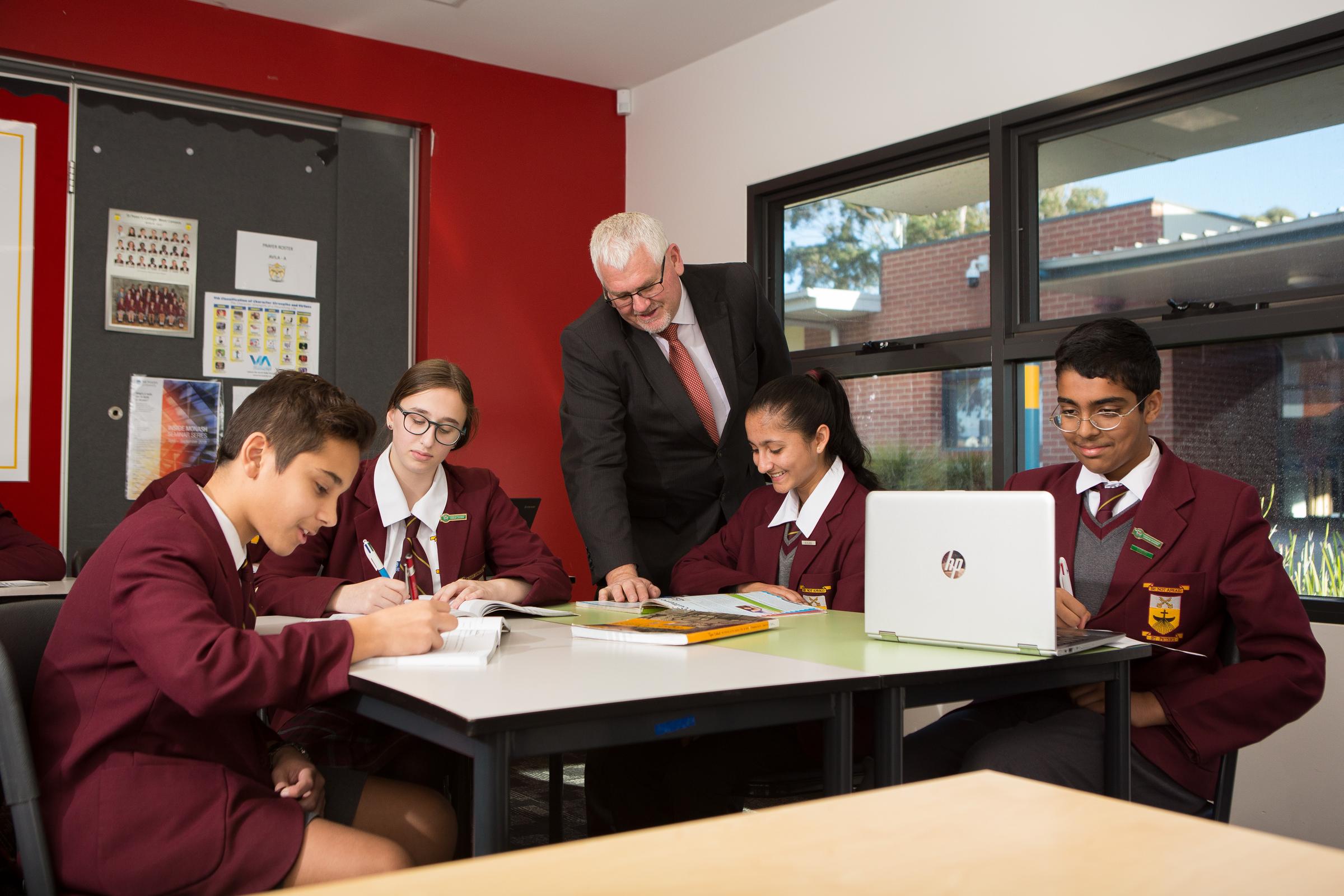Learning & Teaching News

Exams For Year 10 & 11 Students
Due to issues surrounding COVID-19, College Leadership have decided to cancel all formal mid-year Year 10 and Year 11 exams. If students are experiencing some concerns over the cancellation of mid-year exams, I would urge them to reach out to their classroom teacher.
Years 7 - 10 Assessment Dates
A few weeks ago, we published an amended list of Years 7 - 10 Assessment Dates. It is our hope that with clarity around due dates that students will be aware of academic expectations and can plan accordingly, curriculum delivery will be consistent across all classes, and parents/guardians will be able to help their children stay on track towards academic success.
We are currently working on constructing the Semester Two 7 - 10 Assessment Dates, and hope to have this published early in Term Three.
Reporting
Teachers are currently working on completing the end of Semester Summary Reports. Due to the remote learning environment we are currently experiencing, in addition to their usual Tutor Group report only the following subjects will require a summative report in Years 7-10:
- Religious Education
- English
- Mathematics
- Science
- Humanities
- Languages
These reports will be available at 4 pm on Friday, June 26. Instructions will be emailed explaining how to access these reports. As always, if you have any questions or concerns, please feel free to contact your child’s Learning Advisor or classroom teacher via email.
Formative Assessment
Providing Formative Assessment is one of the best ways for us to help students learn. It is a process in which both teachers and students collect information from the assessment and use it collaboratively to plan for future academic success. It looks at what students have learned, haven’t learned, and gives us an idea of ‘where to from here’.
Researchers have found that good use of formative assessment strategies in class can add an extra 6 months growth in learning during a year of teaching. Therefore, it is an exceptionally powerful tool in promoting student achievement. However, Formative Assessment is only successful if students understand the outcome they’re looking to achieve, the standard against which the work is assessed, and the ways in which they can improve (Jarvis, 2020).
Formative Assessment can happen both formally and informally (sometimes just via a classroom conversation!). This is why we refer to Formative Assessment as assessment forlearning. Comparatively, Summative Assessment (assessment of learning) is how we measure outcomes against a set of criteria at the end of a learning period. On the learning continuum, both Formative and Summative have their place as measures to understand the growth of each student.
Bob Stake gave this simple analogy: when the cook tastes the soup it is formative; when the guests taste the soup it is summative. This provides us with a very clear definition between the two types of assessment and highlights the relationship that the stimulus (tasting the soup) can have in providing an avenue for academic outcomes.
As parents, there are a number of things you can do to help promote a Formative Assessment mindset at home.
- Go to SPACE regularly to see what assessment your child has undertaken.
- Look at the rubrics provided on SPACE together with your child - what does a high-level answer look like?
- Refer to the assessment instructions - have all components been completed?
- If your child is asking for your feedback, be specific about what parts you think work well and guide them towards what parts might need editing.
- ‘you need to take a look at your grammar in the second answer - it doesn’t sound right when you read it out loud’ is a lot more informative than ‘you need to read it again’.
- ‘The rubric said that for a high-end answer, you needed to clearly label the formula you used for Area of a Circle - where could you incorporate that in your assignment?’ instead of just settling for a low-end answer.
- Reach out to your child’s teacher - communication between home and school is crucial in helping your child understand that you are a team.
- Check-in with your child whilst they are working and ask clarifying questions like ‘what are you working on?’ or ‘tell me how you’re going to find out the answer to this one!’
- Encourage your child to engage with self-assessment.
Jarvis, Joanne; 2020, online via link - please click here.
Ms Jade Smith Mr David Hansen
Middle Years Curriculum Leader Deputy Principal - Learning and Teaching
- Cranbourne Campus
